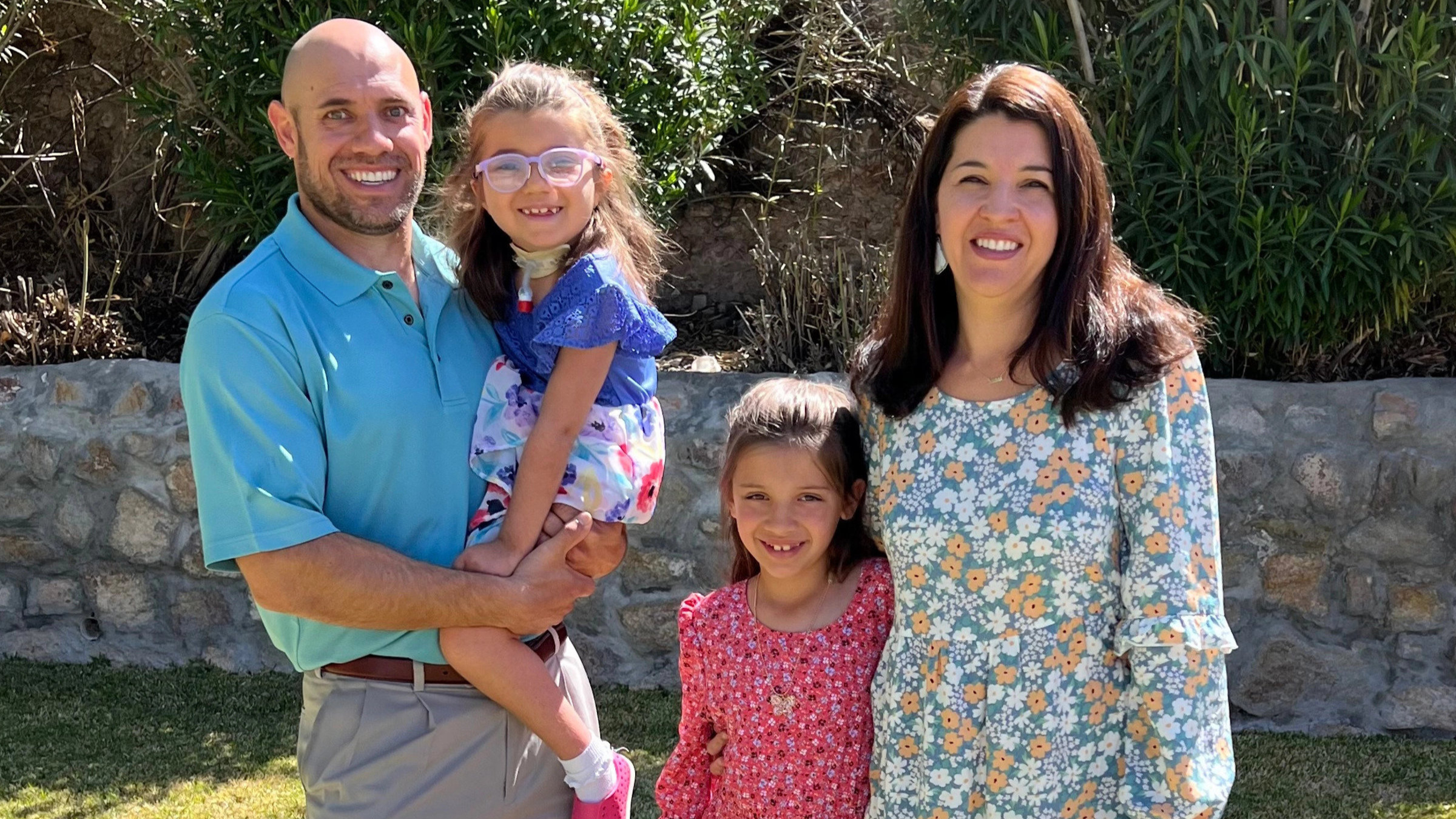
Courtney Boggs, a member of the Cure Mito Foundation, with husband Jacob and daughters Emma (left) and Riley. Emma, 6, who has Leigh syndrome, can't walk without assistance and eats through a feeding tube. The foundation has been working for a treatment, but the company it partnered with has paused its work on it. (RANDY BOGGS)
Parents become drug developers to save their children’s lives
Maggie Carmichael wasn’t developing like other kids. As a toddler, she wasn’t walking and had a limited vocabulary for her age.
She was diagnosed with …
Sign up to read this article for free.
Get free access to a limited number of articles, plus choose newsletters to get straight to your inbox.